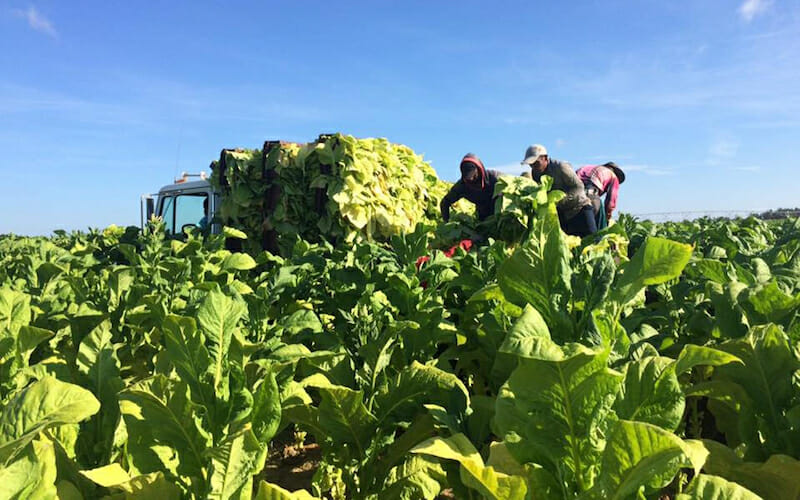
Big Tobacco Feeds Latin American Corruption
Just how widespread is corruption in Latin America? A recent Transparency International study lays bare the region’s worrying trend, with most countries recording increases in violent crime, insecurity, and perceptions of corruption. A staggering two-thirds of the 22,000 participants across 20 countries said they felt corruption had gotten worse since 2016. While some increases are due to headline-grabbing state collapses – read, Venezuela – or massive scandals – Brazil’s infamous Operation Car Wash – another main factor is the comfortable entente between business interests and politicians. And perhaps the most egregious and less explored connection is that between the tobacco industry and Latin American regulators.
At first glance, the tobacco industry looks like a victim – and not the driver – of corruption. After all, it is the most exposed industry to smuggling, losing every year almost 17% of its total sales to the illicit trade, a number that is only expected to grow. Indeed, recent reports have shown that the share of illicit sales has jumped from 19% to 25% over the past 5 years, clocking in at some 57 billion sticks. And if you ask industry execs, they will argue that the phenomenon is driven by bad policymaking, namely government-mandated increases in cigarette prices and the elimination of premium capsule flavored brands. In their view, smokers will naturally turn to cheaper knock-off brands, thereby fueling the illicit trade.
But the story is severely flawed and papers over the role that tobacco companies themselves play in undermining regulations and devising ways to pad their bottom lines without paying their fair share. Just look at the so-called Triple Frontier, where Paraguay, Argentina and Brazil meet and create one of the world’s biggest black markets for tobacco smuggling.
With only 6.9 million inhabitants, Paraguay produces a whopping 60 billion cigarettes every year, 90% of which are sold on the black market and result in untaxed revenues of $1 billion. However, the Paraguayan government has been highly reluctant to address the situation because the country’s current president, Horacio Cartes, happens to own the Cartesa Group that includes Tabesa – the largest tobacco manufacturer in the country, and the one that produces most of the tobacco brands captured from smugglers in Paraguay. The Cartesa Group has even been accused of intentionally producing cigarettes destined for smuggling. Adding insult to injury, a report compiled by the United States Senate Committee on Foreign Relations has also shown that cigarette contraband in Paraguay is carried out by organized criminal groups such as the Colombian FARC, which uses smuggled goods to launder drug money, and by Palestinian terrorist group Hezbollah.
Chile is another country confronted with a similarly grim scenario. It is not only the largest tobacco consumer in the region – 40.6% of Chileans over 15 have taken up the habit and 46 Chileans die every day of smoking-related diseases – but also the South American nation with the second-largest illicit cigarette trade. Black market cigarette sales in Chile have increased by 386% in 5 years, amounting to annual tax losses of $190 million in a country that in 2014 spent 0.8% of its GDP on tobacco-related health diseases. However, every initiative to cut down on the tobacco industry’s popularity has been met with unscrupulous corporate resistance. For example, in July 2015, when the Chilean Senate passed a law that would have introduced generic packaging and banned cigarettes with additives such as menthol, market leader British American Tobacco threatened to close its offices in Chile as soon as the law passed, axing 20% of jobs, alongside $400 million in lost yearly taxes.
Similar to Paraguay, the Chilean government hasn’t done much to tackle the problem of illegal cigarettes. In 2015, authorities tried to implement a track and trace system to prevent smuggling, which would have enabled the Treasury to collect an estimated $500 million per year. However, this initiative was undermined by tobacco companies, which interfered in the bid for the tracking technology. Two of the three companies bidding had ties to tobacco manufacturers, which would have essentially enabled Big Tobacco to self-regulate in defiance of the state and international treaties.
It also didn’t help that the newly appointed Finance Minister, Jorge Rodriguez Grossi, was a self-described “fervent fan of corporations,” and had been the president of British American Tobacco – globally renowned for bribing governments in order to influence tobacco legislation. Chile’s president has also invested millions of dollars in the local British American Tobacco (former Chiletabacos), which has a 93% market share in Chile.
The only way for Latin American countries to break free from the influence of Big Tobacco would be to create a fully independent track and trace system that would provide full transparency over each pack’s journey from factory to store shelf. Stamping out the illicit trade would be a boon for Latin America’s cash-strapped governments, still reeling from the slowdown of the commodity super cycle. Worldwide, the benefits of doing this not only include decreased consumption, a global gain of $31 billion per year for national budgets, but also a reduction of one million in premature deaths due to tobacco products every six years. Latin American countries shouldn’t bow down to the pressure of tobacco companies, who thrive when governments are kept poor and divided.

